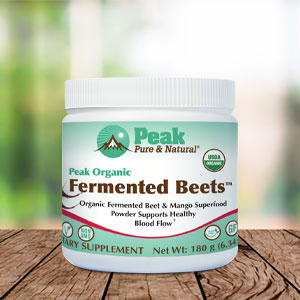Get Easy Health Digest™ in your inbox and don’t miss a thing when you subscribe today. Plus, get the free bonus report, Mother Nature’s Tips, Tricks and Remedies for Cholesterol, Blood Pressure & Blood Sugar as my way of saying welcome to the community!
For lowering stroke risk, diet isn’t the answer (this is)

All kinds of health benefits come from eating a diet rich in whole grains, fruits, vegetables and fish — and little to no added sugar, salt, red meat or highly processed foods.
The evidence shows that when we eat like this, it helps lower risks for cardiovascular disease, type 2 diabetes, age-related frailty, autoimmune diseases and premature death.
But as I noted in a previous article, there’s one condition that Harvard researchers discovered was not helped at all by a healthy diet…
And that’s stroke.
I found this result baffling. The Centers for Disease Control and Prevention says a diet high in trans fats, saturated fats, cholesterol and salt can raise our stroke risk. So why on earth wouldn’t eating healthy overall help protect us against stroke?
Turns out there is another very important factor that may have a bigger impact on your stroke risk. And it has nothing to do with diet at all…
The strongest link to stroke
Mounting evidence shows that constant stress can have a disastrous impact on your health. It increases your chances of developing chronic illnesses like heart disease, diabetes and Alzheimer’s disease. Plus, chronic stress can lead to weight gain and — here’s a big deal — accelerate the aging of your chromosomes.
Now, researchers at the University of Galway in Ireland have discovered a connection between psychosocial stress and stroke. Psychosocial stress can include stress at home and work, as well as any stressful life event like a family death, marital separation or divorce or major intra-family conflict.
The INTERSTROKE study looked at levels of stress in more than 26,000 people worldwide and explored its connection with risk of both types of stroke: ischemic stroke caused by a blood clot and hemorrhagic stroke caused by bleeding in the brain.
Researchers found that the occurrence of just one stressful life event increased the risk of stroke by 17 percent. And two or more stressful life events raised stroke risk by 31 percent.
Work stress was especially dangerous. Those who reported severe work stress were more than twice as likely to have an ischemic stroke and over five times as likely to have a hemorrhagic stroke compared to those reporting no work stress.
Focus on what you can control
Interestingly, the elevated risk was lower in individuals who reported feeling more in control of their situation.
“In people who reported severe home stress, the increase in stroke risk was lower in those who felt that what happens in life is determined by factors within their control,” says Dr. Catriona Reddin of the University of Galway, who led the research.
“Similarly, in individuals who reported severe work stress, the increase in stroke risk was lower in people who felt that they had control over what happens in work in most situations, compared to people who felt that they had little control over their work life,” Reddin adds.
Martin O’Donnell, a professor at the University of Galway and co-lead of the study, notes that stroke is the most common cause of adult disability globally, and that the INTERSTROKE study is giving investigators a better understanding of what is needed to help stroke prevention in different regions and ethnic groups.
He says, “The findings suggest that higher locus of control is associated with lower risk of stroke and may be an important effect modifier of the risk associated with psychosocial stress.”
It’s easy to tell people to control their stress, but not so easy to do. Some stressful situations are inevitable in life. A loved one may die suddenly, or your partner may decide to end your relationship, or you may be laid off at work.
The trick is to determine what you can control and focus on that. But keep in mind there are times in life that are filled with uncertainty and painful emotions.
The best way you can deal with those periods is to turn to stress-reducing habits you should practice regularly — and that serve as a crutch you can lean on harder when times are tough. Consider yoga, meditation, exercise and yes, still strive for eating healthy.
Then, you’ll be better equipped to take steps to modify your own behavior in ways that can help give you more emotional control over any stressful situations you find yourself in.
Editor’s note: What do you really know about stroke? The truth is, only 10% of stroke survivors recover almost completely, and all doctors can offer is what to do after a stroke occurs. That’s unacceptable considering 80% of strokes are preventable! Click here to discover how to escape The Stroke Syndrome: 5 Signs it’s Stalking You — Plus the Hidden Causes and Preventive Measures You’ve Never Heard About!
Sources:
Psychosocial stress tied to higher risk for acute stroke — University of Galway
Association of Psychosocial Stress With Risk of Acute Stroke — JAMA Network Open
Know Your Risk for Stroke — Centers for Disease Control and Prevention
How to Focus on What You Can Control (and Win More Battles) — SoulSALT














